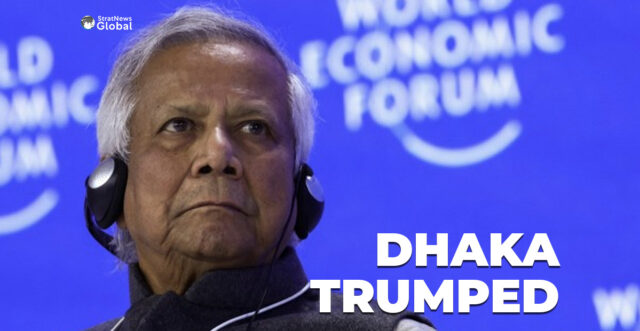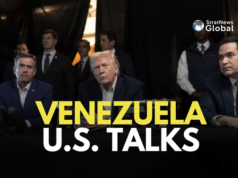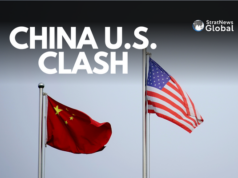
The United States Agency for International Development (USAID) has suspended all funding in Bangladesh, currently led by Muhammad Yunus’ interim administration, as part of a broader policy shift under the Trump administration.
The suspension aligns with a directive issued by US Secretary of State Marco Rubio shortly after President Donald Trump assumed office. The directive, part of an “America First” policy, aimed to sharply curtail US foreign assistance. Rubio’s memo explicitly ordered the cessation of new funding and the extension of existing contracts unless reviewed and approved by the administration.
In its formal notice, USAID directed its partners to halt all ongoing activities under their agreements. The letter, citing President Donald Trump, stated: “This letter is directing all USAID/Bangladesh implementing partners to immediately cease or suspend any work under your USAID/Bangladesh contract, work order, grant, cooperative agreement, or other assistance or acquisition instrument.”
The policy, which broadly impacts various forms of international aid, does include notable exceptions. Military assistance to Israel and Egypt remains intact, reflecting the US’s long-standing strategic partnerships with these nations. Israel continues to receive substantial support, bolstered further in the aftermath of the Gaza conflict.
Similarly, Egypt has maintained generous defense funding from the US since its 1979 peace treaty with Israel. Emergency food aid, critical in addressing humanitarian crises in regions such as Sudan and Syria, was also excluded to ensure continued support for global relief efforts.
For Bangladesh, however, the policy shift is particularly devastating. The country, already reeling from economic challenges like inflation, dwindling foreign reserves, and a struggling export sector, now faces the additional burden of managing the fallout from the abrupt withdrawal of US aid.
Moreover, the US is also the largest contributor of humanitarian assistance in response to the Rohingya crisis, having provided nearly USD 2.4 billion since the violence began in August 2017. It has provided USD 490 million as obligations and another USD 550 million as disbursement in 2023 alone via all its agencies.
In a career spanning three decades and counting, Ramananda (Ram to his friends) has been the foreign editor of The Telegraph, Outlook Magazine and the New Indian Express. He helped set up rediff.com’s editorial operations in San Jose and New York, helmed sify.com, and was the founder editor of India.com.
His work has featured in national and international publications like the Al Jazeera Centre for Studies, Global Times and Ashahi Shimbun. But his one constant over all these years, he says, has been the attempt to understand rising India’s place in the world.
He can rustle up a mean salad, his oil-less pepper chicken is to die for, and all it takes is some beer and rhythm and blues to rock his soul.
Talk to him about foreign and strategic affairs, media, South Asia, China, and of course India.




